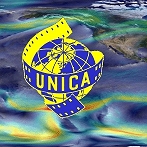
GENERAL ASSEMBLY
August 30th 2013
Page 1
Committee Members Attending
Georges Fondeur (President)
Jeanne Glass (Vice-President)
Jan Essing (Secretary General)
Thomas Kräuchi (Treasurer)
Advisers:
Artashes Hovanessian
Rolf Leuenberger
Rolf Mandolesi
Stanislaw Puls
Alois Urbanek
Also Present
Max Hänsli (Honorary President)
Fred Graber (Friends of UNICA)
Wolfgang Freier (UNICA Patronage)
Claire Auda (Translations)
Alois Urbanek (Congress President)
Serge Michel (IFTC Liaison)
Wolfgang Schweiger (Executive Director)
Not Present
Zeljko Balog (Adviser)
Arie de Jong (Webmaster)
Federations Represented
Armenia
Austria
Belgium
Bulgaria
Switzerland
Czech Republic
Germany
Spain
Estonia
Finland
France
United Kingdom
Croatia
Italy
Republic Of Korea
Liechtenstein
Luxembourg
Macedonia
Netherlands
Poland
Romania
Russia
Slovakia
Ukraine
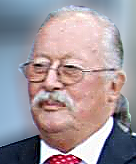 1. Opening address by
the President of the Congress
1. Opening address by
the President of the Congress
The President of the Congress Alois Urbanek welcomes the attendees to the General Assembly. Claire Auda and her interpreter team translate the meeting simultaneously into French, German and English.
2. Federations / Representatives / Deputies
Argentina
Armenia - Art Hovanessian & Arman Aaronyan
Austria - Dr. Georg Schörner & Alois Urbanek
Belgium - Michelle Cooreman & André Lion
Bulgaria - Vladimir Iliev & Stanimira Ilieva
Switzerland - Rolf Diehl & Ernst Wicki
Czech Republic - Dipl Ing. Ladislav Františ & Dipl. Ing. Jan Vačlena
Germany - Barbara Zimmermann & Bernhard Zimmermann
Spain - Josep Rota
Estonia - Jaak Järvine
Finland - Pentti Kemppinen
France - Marie Cipriani & Philip Sevestre
United Kingdom - Alan Atkinson & John Gibbs
Georgia
Croatia - Aleksander Muharemovic
Italy - Rolf Mandolesi
Republic Of Korea - Yong Ho Kim & Misoon Seo / Sangchul Kim
Liechtenstein - Ralf Klossner & Hans Schober
Luxembourg - Jean Reusch & Louis Schmitz
Macedonia - Mitze Chapovski
Netherlands - Vladimir Murtin & Bouke Jasper
Poland - Stani Puls
Romania - Emil Mateias
Russia - Nina Zaytseva & Viacheslav Zaitcev
Slovakia - PhDr. Zuzana Škludová & Jan Kuska
Slovenia
Sweden
Tunisia
Ukraine - Ievgen Maksymov & Iurii Ripenko
Uzbekistan
The membership of UNICA currently is 31
countries. The maximum number of votes is 31. 7 countries are not
attending nor represented, so 24 countries are present or
represented at the start of the meeting. So more than 50% of the
members are present and therefore the assembly is qualified to vote
and to decide.
The majority to this meeting will thus be 13.
Part 2
- Report of Friends of UNICA
- Report of Patronages
- Report of the delegate to I.F.T.C.
- Report regarding UNICA Web
- Discharge of the Committee
- Election of a new auditor
- Admission and resignation of members
- Discussion and vote about proposals of the Committee
Part 3
- Discussion and vote about proposals submitted by members
- Determination of next year's contribution
- Confirmation of the budget
- Selection of the place and dates of the congress in future years
- Miscellaneous, without vote
Other Papers
Committee Report (General Secretary)
3. AGM Organisation
Proposals by the Committee:
Chairman of the General Assembly - Georges Fondeur
Secretary - Jan Essing
Vote counters - Bernhard Zimmerman (DEU) &
Emil Mateias (ROU)
Approved unanimously.
4. Confirmation of the agenda
The Agenda receives unanimous approval.
5. Address by the President of UNICA
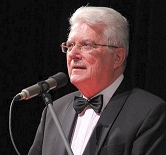 At
the instruction of the General Assembly, the address by the
President is not sent out before the meeting, but presented
personally by the President during the meeting.
At
the instruction of the General Assembly, the address by the
President is not sent out before the meeting, but presented
personally by the President during the meeting.
The president emphasises his gratitude
towards to Alois Urbanek for the well-organized
UNICA Congress and Festival so far in Fieberbrunn. There are no
questions regarding the President's address (read
it here).
Unanimous approval of the address, with thanks and applause for the
President.
6 Vote on the Minutes of the General Assembly UNICA 2012 in Russe (BGR)
The Minutes in three languages were sent to the federations. There are no questions regarding them. (Read them online here.)
The Minutes receive unanimous approval, with thanks and applause for the Secretary General, Jan Essing.
7. Report of the Committee by the Secretary General
The extensive report in three languages with detailed information was sent to the federations. (Read it here.) There are no questions. The report of the Committee is accepted with unanimous approval, with thanks and applause for the Secretary General, Jan Essing.
8. Report of the Treasurer
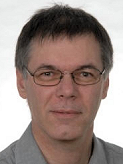 The report (in
3 languages) was sent to the federations. (Read
it as a pdf here.)
The report (in
3 languages) was sent to the federations. (Read
it as a pdf here.)
Thomas Kräuchi (Treasurer): A small profit was made during 2012. South-Korea helped with the purchase of rather inexpensive medals for next 3 festivals. They have been activated for 1€
For three years HUN hasn’t paid their annual contribution, so they
have to be expelled from the list of affiliated countries.
The report of the treasurer is approved unanimously and welcomed
with thanks and loud applause to the treasurer,Thomas
Kräuchi.
9. Report of the Auditors
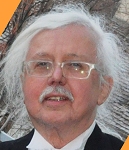 Louis
Schmitz (LUX) reads the Auditors' report aloud
during the meeting (Read
it as a pdf here.)
Louis
Schmitz (LUX) reads the Auditors' report aloud
during the meeting (Read
it as a pdf here.)
Ralk Klossner (LIE) and Louis Schmitz (LUX) performed this year's audit. They scrutinized the bookkeeping and the bank accounts and declare that everything complies with the budget and mandates. They are confident in the way the treasurer performs his task and propose acceptance of all previous reports of the treasurer.
There are no questions regarding the Report of the Auditors.
10. Report of the Film Librarian
Since Hans Schober (ex-Librarian) quit his office
as Film librarian the films have been stored in the house of Thomas
Kräuchi (treasurer) No films have been requested since
then, other than for the compiling of a special DVD for the IFTC,
organised by Serge Michel (IFTC Liaison).
Georg Schörner (AUT): We are in the fortunate
possession of annual DVDs, but it would be good to know exactly what
happens with the films, originally based on celluloid. We have good
reserves in the balance sheet, and maybe it would be wise to use it
for digitising the old films. In that way affiliated countries could
use those films as well. UNICA not only has the obligation to
preserve films but also to use film for education and information.
For that we shouldn’t rely solely on video but also on films.
Georges Fondeur (president): This issue will
be discussed under item #18